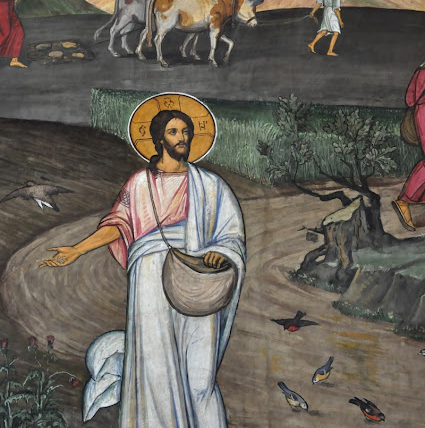15th Sunday C – The Good Samaritan
Why did Jesus make a Samaritan as the hero in the parable? Samaritans were traitors to the Jewish faith and thinking, and had allied themselves to the enemies of the Jews. Maybe his choice of a Samaritan had enough sharpness to penetrate the hidebound attitude of his listeners to foreigners. This parable could even be a threat to our own assumptions about people and religions and God and the ways of God. Had the Samaritan himself ever been beaten up? He seemed to understand the plight of the victim on the road. Did his experience as a member of a despised group of people, outsiders to the religious and national thinking of the Jews, make him respond so handsomely to the victim who was dying on the roadside? ‘Do unto others as you would have them do unto you.’
The “Good Samaritan” story is so familiar that the term has passed into everyday language. “Good Samaritans” offer food and clothing to the poor, shelter to the homeless, hospitality to immigrants, time and resources to whomsoever is in need of comforting. Because of its familiarity, the gospel story can easily go “unheard” – over our heads and not really listened to. They say that when Moses wrote the Law for Israel he meant it first of all to be listened to, and then obeyed. Listening reveals to us what often lies hidden in our own hearts and can save us from a mindless and knee-jerk response.
“For those who seek God’s will, the important thing is not to read laws written on stone tablets, but to discover the requirements of love in people’s lives” – Jose Pagola, JESUS, 248. Healthy people feel a need for love in their lives. The Samaritan went to the victim’s aid not because a law told him to, but because he identified with the victim’s plight. The injured person lay on the roadside hoping against hope that someone would come and offer loving care and attention. He needed to feel the warmth and generosity of another person’s tender loving care. The Samaritan was drawn to a level of care and concern that exceeded the demands of the law, and found it in the receptivity of the injured person. The parable puts us in touch with the raw nature of our own need to be loved and to love.
There is in all of us a need not only to be loved, but to love and to reach out and make a difference to someone. The parable reminds me that we can choose to be a Good Samaritan or an onlooker, a cheerleader, a hurler on the fence. “Each one of us matters, has a role to play, and makes a difference. It is these undeniable qualities of love and compassion and self-sacrifice that give me hope for the future. We are, indeed, often cruel and evil. Nobody can deny this. We gang up on each other and torture one another with words as well as deeds. We fight, we kill. But we are also capable of the most noble, generous and heroic behaviour”- Jane Goodall, REASON FOR HOPE, 91.
Fr. QQ – 07/06/2022




